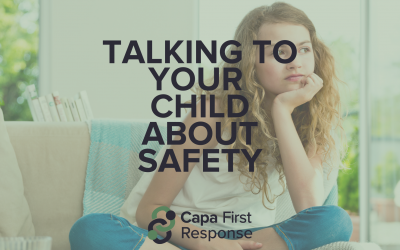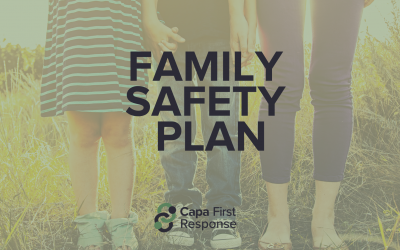Our specialist practitioners have got together to look at some of the challenges families face this time of year and put together some helpful tips and strategies. If you are struggling and need further support please email us. We offer free advice & Support sessions throughout the year and in January will be holding our first parents forum. This will give you the opportunity to attend a live Q&A and with Jane and Matt from Capa First Response
Some of the challenges families face:
Changes in Routine – Christmas often disrupts regular routines with school closures, family gatherings and celebrations. These disruptions can amplify stress, as the lack of structure may exacerbate existing issues, increasing aggressive and harmful behaviours.
Financial Pressure – Societal expectations and the commercialisation of Christmas can create pressure on parents to provide a festive experience, including gifts, hosting gatherings, and other festive expenses all of which can contribute to tension within families. Managing a child’s expectations and demands may be intensified for families dealing with child-to-parent abuse alongside additional guilt or inadequacy, which can lead to escalation of unwanted behaviour.
Being at Home with an Angry Child – During Christmas when families spend more time together, the likelihood of confrontations may increase which impacts the overall atmosphere in the home. With the closure of schools and supporting services, spending additional time together can be something parents dread – for some families this will lead to escalation in unwanted behaviour as being together the home can feel ‘like a pressure cooker’, waiting for the explosion to happen.
Impact on Siblings – Siblings may bear witness to the behaviour, experiencing emotional distress and fear. They might also feel torn between family loyalty and the need for self-protection, it can be particularly challenging for children dealing with the effects of a sibling lashing out and being violent.
Sensory Overload for Those with Neurodiversity – Individuals with neurodiversity, such as autism spectrum conditions may experience sensory overload during this time of year. The increased stimulation from lights, sounds, and social gatherings can be overwhelming for everyone but will especially affect those who are already sensitive to their surroundings. In the context of child-to-parent abuse, managing these sensory challenges becomes an additional stressor for both parents and child.
Coping Strategies:
Manage Excitement – To navigate the surge of excitement, consider strategies for emotional regulation, such as reading a Christmas-themed story together, incorporating mindfulness exercises, or getting outside and burning off some excitement and rise of adrenalin with physical exercise. The phrase ‘ Don’t sweat the small stuff’ can really help, using a flexible parenting approach and recognising that heightened emotions may result in a higher level of unexpected behaviour, and respond with patience and empathy.
Be Mindful of Sensory Needs – Create a designated quiet space where your child can retreat if the sensory stimulation becomes too much, allowing them to recharge and join in the celebrations at their own pace. Forcing a child to ‘be festive’ when they are finding it hard is unfair and will escalate their emotions. Recognizing your child may need to be alone in their room rather than in a house full of extra people, validating this and checking in with them can go a long way to easing your child’s anxiety and potential explosions.
Stick to Routines – In the whirlwind of Christmas excitement, maintaining a consistent daily routine is your secret weapon. Children thrive on predictability, and adhering to a regular schedule can provide them with a sense of security. As much as possible, stick to mealtimes, bedtime routines, and other daily rituals to anchor your child amidst the potential chaos of Christmas. Talk to your child about the day ahead and what is happening, encourage them to talk about any struggles or ‘hotspots’ they may have and how you can work together to minimise escalations.
Create a Visual Schedule – A visual timetable or calendar can be a game-changer, providing a tangible representation of the upcoming events and festivities. This reduces anxiety and minimises the chances of unexpected surprises which could be difficult for your child to cope with, potentially causing them to become dysregulated or meltdown. This can be a breakdown of one day or a week’s guide of activities. Find what works for you and don’t forget to put in down time or free activities.
Downtime – whether it’s a quiet evening in or a peaceful walk these moments of respite can prevent meltdowns triggered by exhaustion or sensory overload. Free activities is a time in the day where there are no plans and you can decide together what you may like to do which can include doing nothing!
Offer Choices: Provide options allowing your child to make choices, for instance, let them choose between two Christmas movies or help decide between sprouts or peas for dinner. By offering choices, you reduce resistance and enhance their engagement in the festive preparations. Make time to encourage everyone to express their feelings and concerns, fostering an environment where everyone feels heard.
Safety Planning – Develop a safety plan for situations involving aggression and or harmful behaviours. This plan may involve identifying safe spaces within the home, having emergency contacts, and knowing where to seek help. If you are having guests to stay, or are staying elsewhere it would be helpful to brief them on what would be beneficial if an angry outburst occurs. For example, you might prefer other adults not to interject or raise their voice towards your child, or you may need to ask to have access to a specific room for you and your child to use as a ‘safe space’ away from others.
Click here to find out more about how we work with families, and read our FAQ’s for more information on about our organisation.


